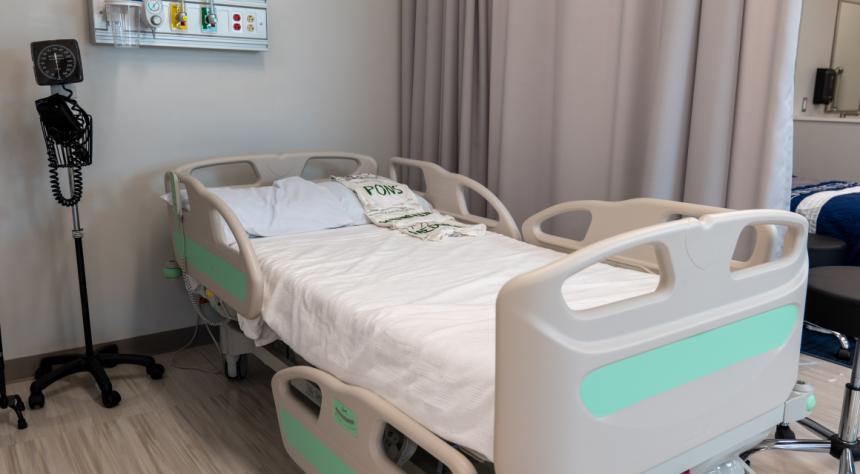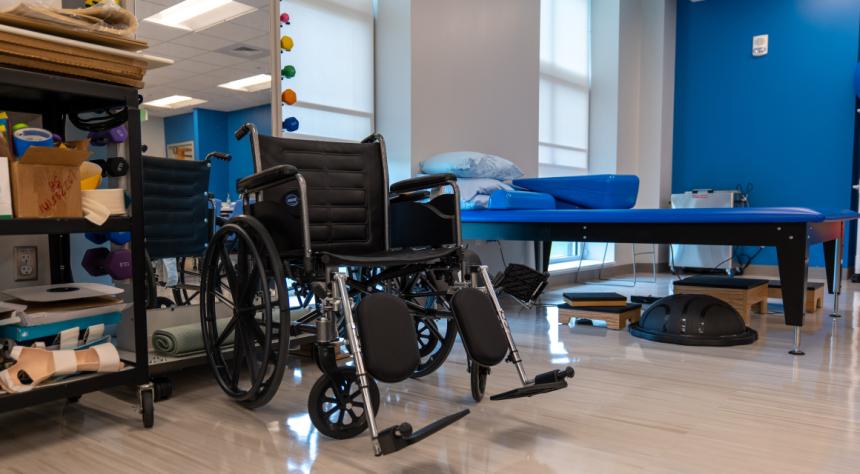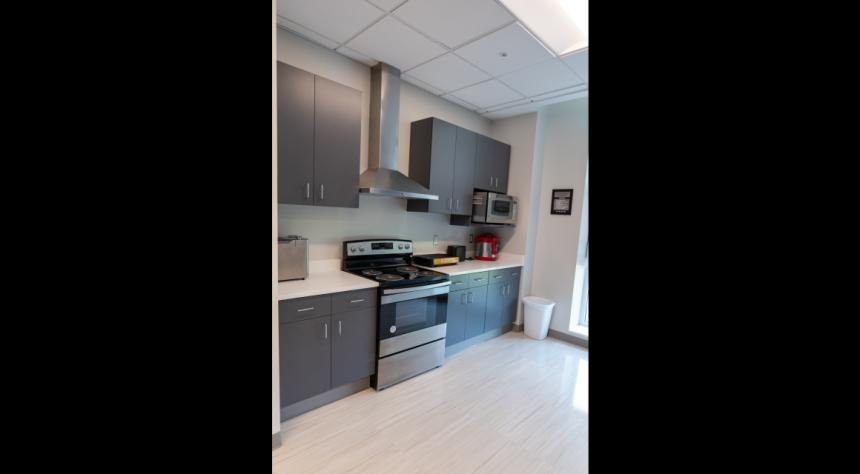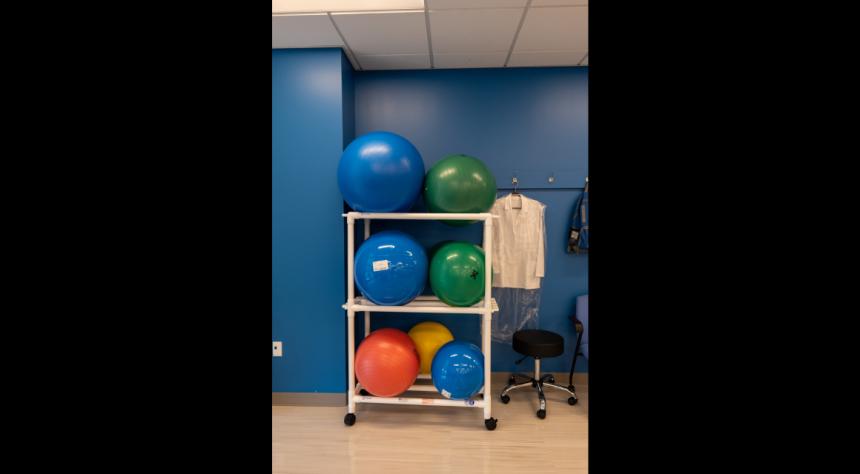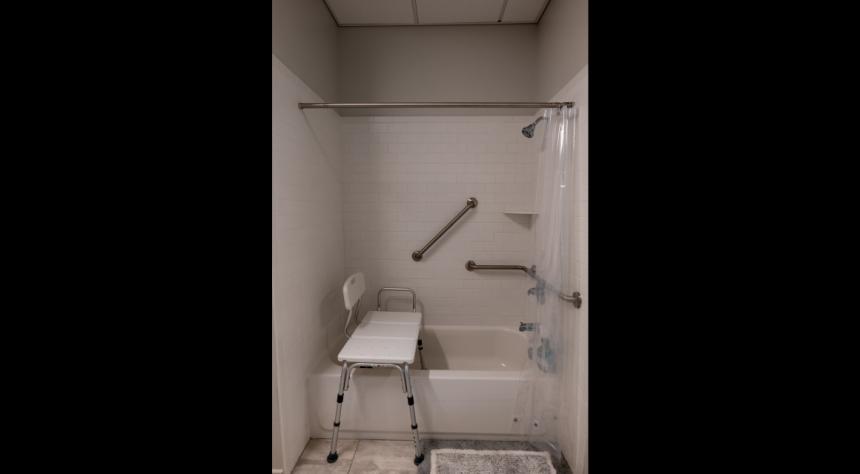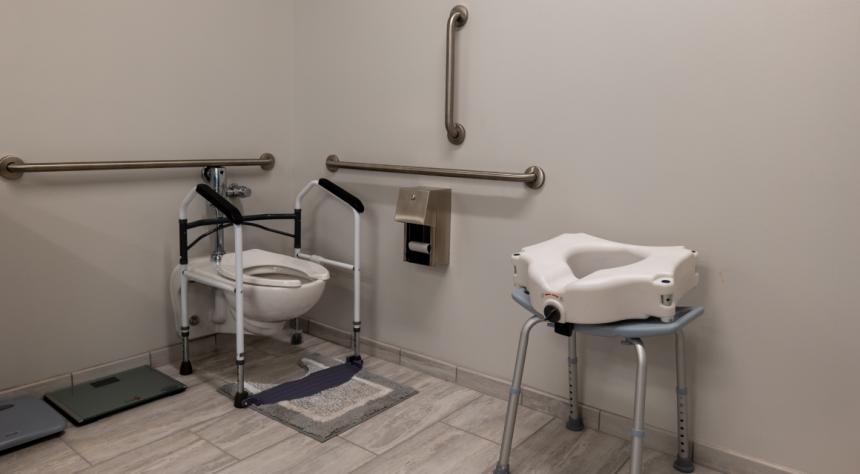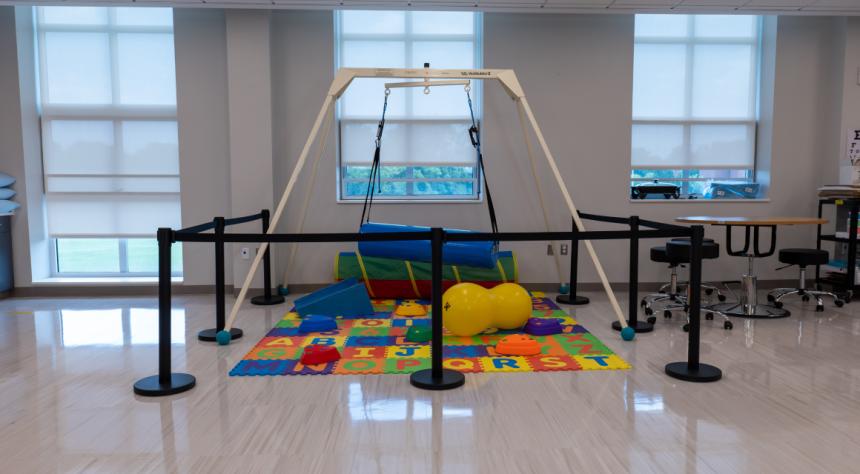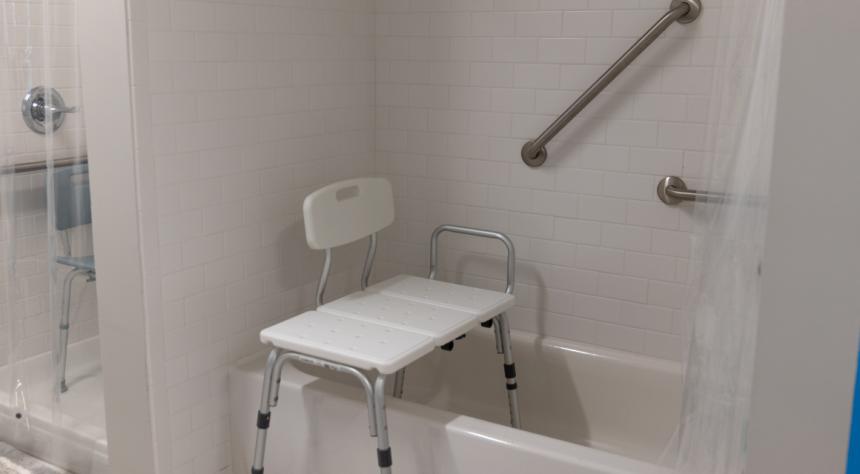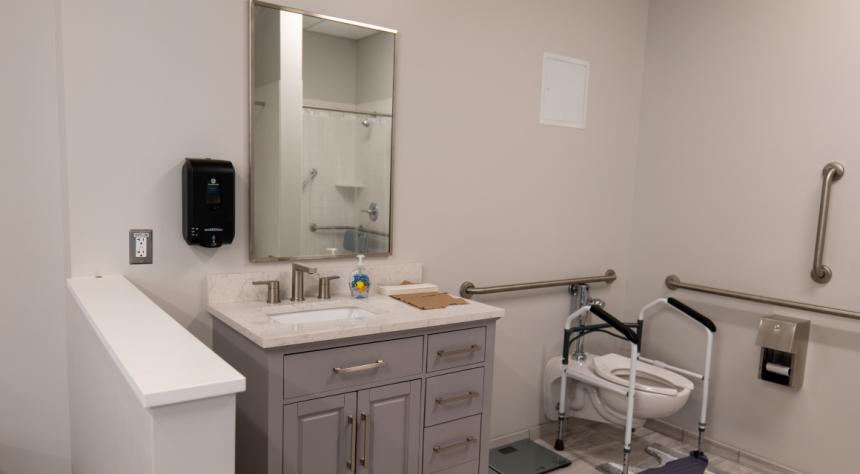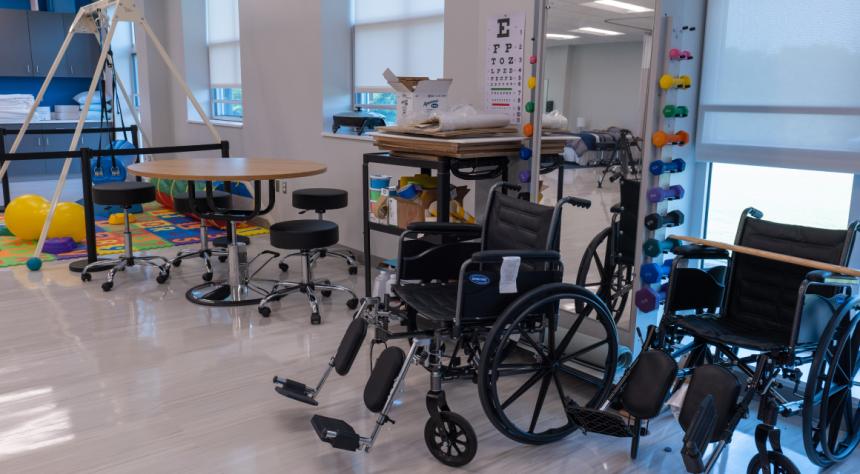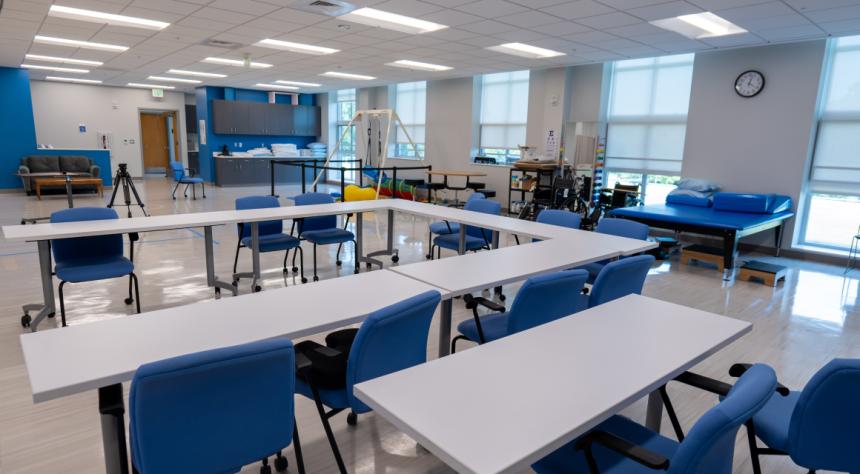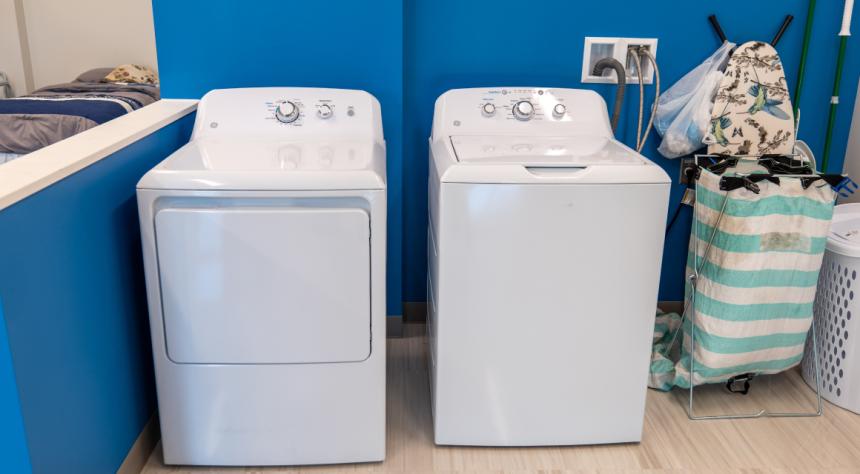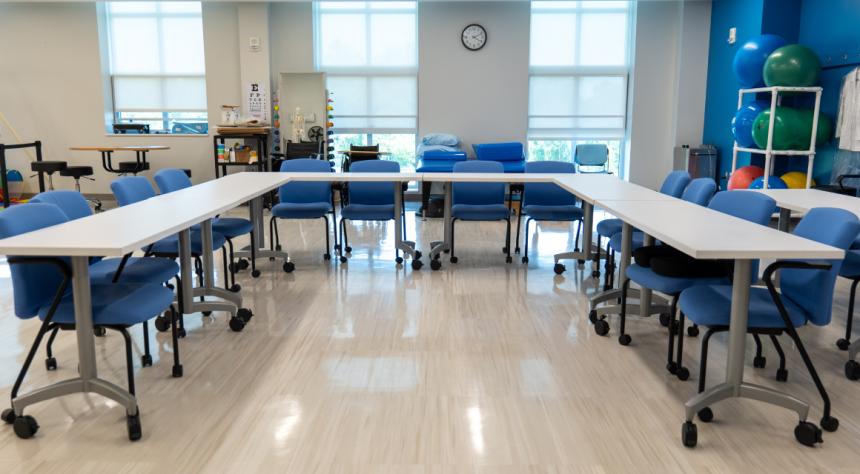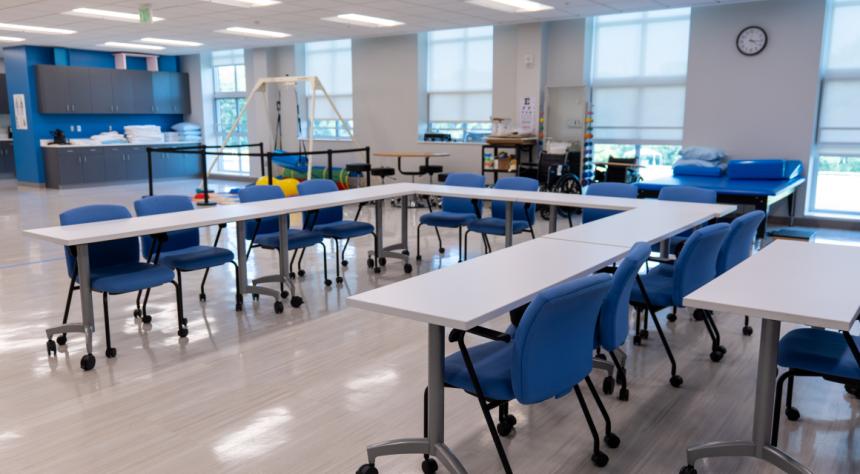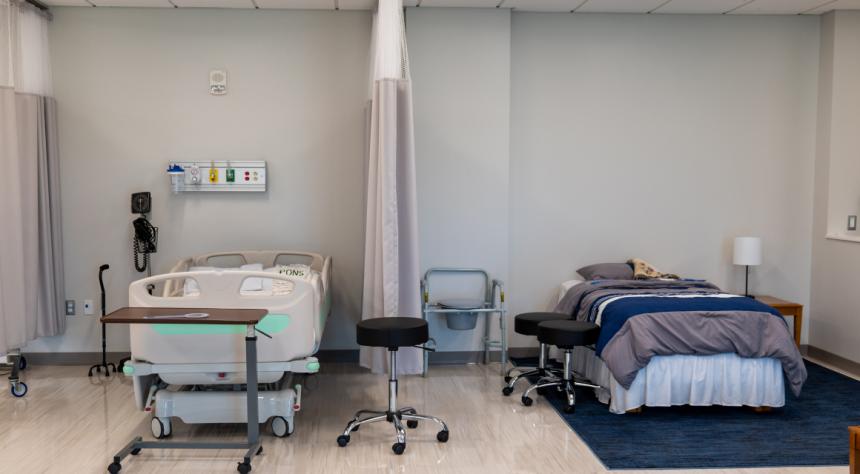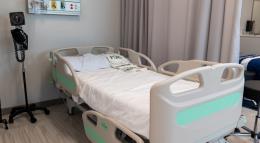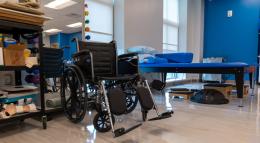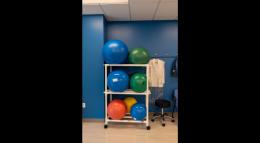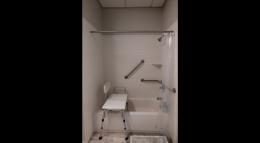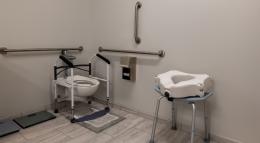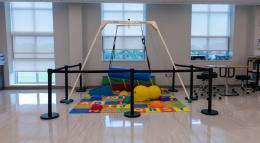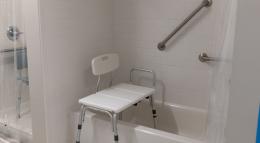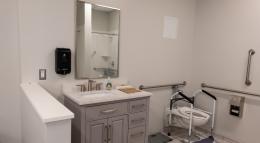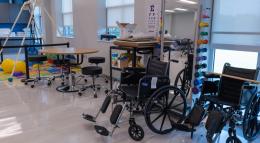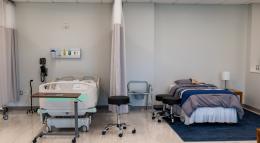At Notre Dame of Maryland University, OT academic coursework and fieldwork are integrated into a curriculum that’s occupation-sustainable-focused, evidence-based, client-centered, and organized from an engaged-meaningful life perspective. You’ll learn the practical use of theoretical concepts embedded in the evidence supporting practice, and learn occupational therapy with professors and practitioners known in national and international communities.
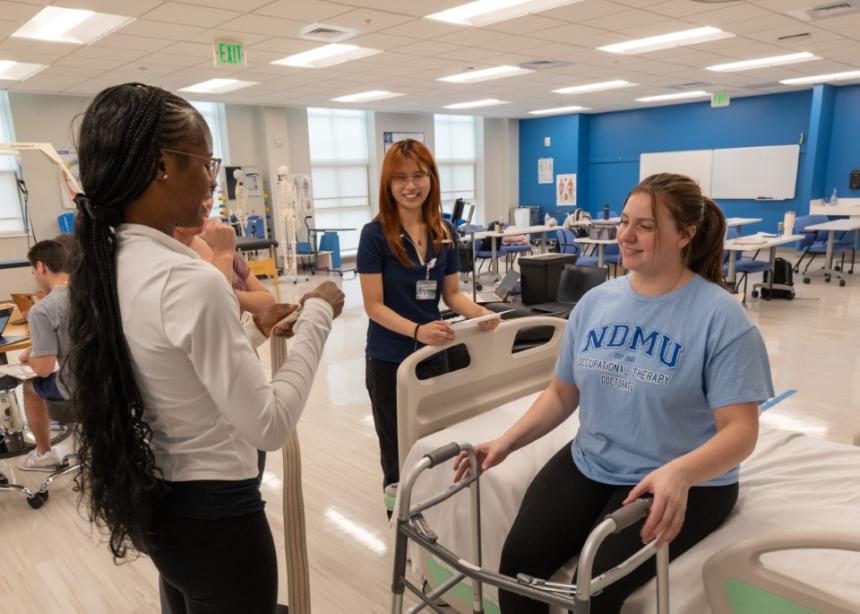
What to Expect Studying at Notre Dame of Maryland University
Notre Dame of Maryland's Doctor of Occupational Therapy (OTD) program is designed to give you the knowledge and skills required to excel in occupational therapy practice. Our experiential, occupation-sustainable-focused curriculum includes physical and mental rehabilitation across the lifespan, interprofessional wellness models, population health and occupational justice, globally diverse-sustainable-interprofessional healthcare practices, business and education healthcare models, and a robust research-capstone journey to support our future evidence-based driven leaders.
Commitment
The OTD is a three-year, 104-credit, full-time program completed over nine semesters, including summers. The curriculum comprises traditional, hybrid, and fully online courses in a cohort-based model, highlighting the importance of hands-on applications and training. Across the curriculum, students benefit from Level I and Level II clinical experiences. The OTD program culminates in a Scholarly Project Implementation Experience (SPIE), incorporating a 14-week student-designed research project and public presentation to facilitate, promote, and sustain research agendas and evidence-based occupational therapy practices.
Upon completing all the didactic, clinical, and research requirements in the OTD program, you will be eligible to sit for the National Board for Certification in Occupational Therapy (NBCOT) exam. After successful board certification, you will be eligible to apply for licensure in the state(s) you seek to practice.
Please review the How to Apply section for any information regarding how to apply to the NDMU-OTD program.
Mission
The Occupational Therapy program focuses on educating a new generation of interdisciplinary transformational leaders and scholars educated to deliver inclusive, equitable, client-centered, evidence-based, culturally competent, distinctive, and sustainable healthcare practices.
Core Values
- Sustainable Development – committed to building local and global sustainable healthcare practices.
- Interprofessional Practice – promoting team-based client-centered across the lifetime practices to deliver the utmost quality care.
- Creativity: cultivating innovative thinking and methods that positively influence pressing sustainable healthcare approaches and practices.
- Racial Equity: full participation of all individuals and health equity.
- Inclusion: building a culture of belonging and participation for all people
- Ethical Practice: fulfilling our commitment to honesty, transparency, and accountability for our decisions, actions and outcomes.
Associate Clinical Faculty
- Tamerill Faison, OTD, MS, OTR/L
- Samantha Painter, MSOT, OTR/L
- Josue Rosario-Caliz, EdD
Curriculum
Year 1
Fall Semester (15 Semester Hours)
OTD 532 OT Foundational Knowledge & Practice (4)
OTD 534 Neuroscience for Rehabilitation (3)
OTD 536 Population Health and Occ Justice (2)
OTD 537 Research I - Qual and Quant Methods (3)
OTD 538 Healthcare Ethics, Policy and Advocacy (3)
Spring Semester (15.5 Semester Hours)
OTD 542 Immersive I - Mental Health (4)
OTD 543 Cognition Across the Lifespan (2)
OTD 544 Vision Across the Lifespan (2)
OTD 546 Research II – Mix Methods and Stats (3)
OTD 548 Clinical Med and Pharmacology (3)
OTD 549 Interprofessional Healthcare Engagement (1)
OTD 545 Fieldwork Level 1A – Mental Health (.5)
Summer Semester (10.5 Semester Hours)
OTD 551 Immersive II - Physical Rehabilitation (3)
OTD 552 Anatomy and Biomechanics (3)
OTD 553 UE Evaluation and Intervention (2)
OTD 555 Capstone Planning I (1)
OTD 554 Fieldwork Level 1B – Physical Rehab (.5)
Year 2
Fall Semester (13.5 Semester Hours)
OTD 601 Immersive III – Pediatrics and Youth (4)
OTD 602 OT School Based Practice (2)
OTD 603 Neuro Rehabilitation (3)
OTD 605 Assistive Technology (2)
OTD 608 Capstone Planning II (2)
OTD 611 Fieldwork Level 1C – Pediatrics (.5)
Spring Semester (12.5 Semester Hours
OTD 621 Leadership and Management (3)
OTD 623 Aging and Wellness (3)
OTD 625 Qualitative Improv Through Translational Sciences (2)
OTD 627 Buss Planning & Development in OT Practice (3)
OTD 628 Capstone Planning III (1)
OTD 612Level 1D Emerging Area (.5)
Summer Semester (9 Semester Hours)
OTD 631 Advanced Practice in OT: Border & Barriers (3)
OTD 633 Instructional Design, Strategies & Delivery Methods (3)
OTD 635 Capstone Planning IV - (2)
OTD 638 Professional Seminar – (1)
Year 3
Fall Semester (9 Semester Hours)
OTD 642 Capstone Planning V (1)
OTD 650 Level II A Fieldwork (8)
Spring Semester (9 Semester Hours
OTD 700 Doctoral Experience Prep Seminar (1)
OTD 660 Level II A Fieldwork (8)
Summer Semester (10 Semester Hours)
OTD 721 Capstone Presentation (1)
OTD 720 Doctoral Rotation (9)
Admission Requirements
Admission into the OTD program at NDMU is competitive. Students are considered for admission with the following:
- Bachelor's degree - minimum 3.0 cumulative GPA (4.0 scale)
- Completion of prerequisite courses
- 3 letters of recommendation
- Human service observation hours
- Personal statement
- Resume
- Interview
Note: All observational hours need to be completed within the past two years.
Prerequisites
Completion of the following prerequisite courses within the past 5 years with a minimum cumulative grade point average of B (3.0 based on 4.0) is required for admission into the OTD program. Transcripts of bachelor’s degree and completed prerequisite courses must be submitted. Courses may be taken online or in person from an accredited institution.
NOTE: Students may have a maximum of 2 prerequisite courses with a grade of C (as long as their cumulative grade point average is 3.0 across all prerequisites).
Required Courses & Credits
- Human Anatomy & Physiology I Course and Lab (4)
- Human Anatomy & Physiology II Course and Lab (4)
- College Writing (3)
- Basic Statistics (3)
- Introductory Psychology (3)
- Psychopathology OR Abnormal Psychology (3)
- Human Growth & Development or Developmental Psychology Across Life Span (3)
- Introductory Sociology (3)
- Medical Terminology (3)
- Neuroscience or Cognitive Psychology or Brain and Behavior (3)
Total Credits: 32
NOTE: Advanced Placement (AP) credits are not accepted as fulfillment of prerequisite courses. Course credits from other occupational therapy programs are not accepted.
Letters of Recommendations
Provide three letters of recommendation, from individuals who have taught the applicant in an academic setting. Letters of recommendation should address academic, professional and personal attributes, and potential for successful graduate education.
Human Service Observation
Applicants are required to complete thirty (30) hours of observation. Three practice area and settings are required, one with 10 hours and two with 10 hours each. All observational hours need to be completed within the past three years.
- Ten (10) hours in the practice area that you intend to pursue after graduation and must be done under the direction of an Occupational therapist.
- One additional observation must be done with an OTR.
- The third observation may come from work experience where you worked with populations with a disability, including geriatrics, pediatrics, day camps, mental/behavioral health, etc., for example.
NOTE: Your essay should be reflective of your insights and experiences gained from these observations. All hours must be completed prior to admission into the program.
Personal Statement
A personal statement should cover your interest in occupational therapy with emphasis on the practice area that you intend to pursue after graduation, insights gained from the observations, your strengths, professional skills, personal attributes, and how these experiences have helped to shape your desire to become an occupational therapist. Required length is a minimum of 500 words to a maximum of 750 words.
Technology Integration, Requirements, and Expectations
| Component |
Windows Desktop/Laptop |
MacDesktop/Laptop |
|
Operating (OS)
|
Latest 64-bit OS
|
Latest OS
|
|
Processor
|
Intel Core i7 or Ryzen 5/7/9
|
Intel Core i7 or Ryzen 5/7/9
|
|
RAM or Memory
|
8GB
|
8GB
|
|
Hard Drive
|
120GB/250GB Solid State or Flash drive
|
120GB/250GB Solid State or Flash drive
|
|
Web Cam and Microphone
|
Yes
|
Yes
|
|
Graphics Card
|
Intel Graphics
|
Intel Graphics
|
|
Warranty
|
Recommended
|
Recommended
|
|
High Speed Internet
|
Yes
|
Yes
|
|
Tablet, Macbook Air, and Hybrid devices are not recommended for production and computing
|
Technology Competencies
Success in both the online and in-person portions of the program requires students to have the ability to navigate the institution’s learning management system (Canvas), manage electronic communications (email), utilize research and information databases, and install software. Online courses will consist of a combination of scheduled synchronous and asynchronous learning activities; synchronous sessions will require use of the Zoom platform. In-person courses will maximize the use of technology with no seat-time reduction, using the Canvas learning management system for administration, communication, assessment and content delivery to both supplement and enhance the face-to-face experience. Prior to starting coursework, all students will be required to complete an online orientation course through Canvas that will prepare them to meet the technology competency requirements of the online portions of the program. Additionally, students will have ongoing access to the IT service desk to assist with managing questions or concerns related to required technologies while in the program.
Cost of Attendance
Estimated Costs: Doctorate in Occupational Therapy
The charts below contain estimates of direct costs for AY2023-24 for Maryland residents and out-of-state students for the Doctorate in Occupational Therapy program. Students should consult the University’s Business Office webpage for the most up-to-date tuition and fee rates.
Cost Estimate: Maryland Residents
|
|
Year 1
|
Year 2
|
Year 3
|
Program Total
|
|
Tuition
|
$29,000
|
$29,000
|
$29,000
|
$87,000
|
|
Maryland Resident Scholarship*
|
($10,000)
|
($10,000)
|
($10,000)
|
($30,000)
|
|
Fees
|
$1,000
|
$1,000
|
$1,000
|
$3,000
|
|
Total
|
$20,000
|
$20,000
|
$20,000
|
$60,000
|
* Beginning for AY2023-24, new applicants who are Maryland State residents at the time of application will automatically receive a $10,000 “Maryland Resident Scholarship” per year to help offset the cost of tuition for Maryland students.
Cost Estimate: Out-of-State Residents
|
|
Year 1
|
Year 2
|
Year 3
|
Program Total
|
|
Tuition
|
$29,000
|
$29,000
|
$29,000
|
$87,000
|
|
Fees
|
$1,000
|
$1,000
|
$1,000
|
$3,000
|
|
Total
|
$30,000
|
$30,000
|
$30,000
|
$90,000
|
Additional Notes
- Estimates do not include other direct or indirect costs which may include but are not limited to: room and board, transportation costs, personal expenses, health insurance, background checks, etc.
- The program total cost estimates above do not include annual tuition and fees increases. Tuition and fee rates are determined annually year by the Board of Trustees, and are subject to change.
https://catalog.ndm.edu/
Fieldwork
Opportunities for clinical experiences are built into the curriculum to provide gradually increased levels of responsibility and experience in occupational therapy settings under the guidance and supervision of a qualified occupational therapist.
- Level I Fieldwork provides an introductory experience where you can become more comfortable with client needs in a supervised setting. It helps to enrich didactic coursework by seeing firsthand the concepts discussed in class. It also provides an opportunity to explore different practice settings. At NDMU, level I fieldwork includes placements related to physical dysfunction; mental health; pediatrics; and education, wellness, community, and emerging trends.
- Level II Fieldwork provides more in-depth experiences working directly with clients to enhance your skills as a practitioner. The NDMU curriculum includes two full-time placements.
Capstone
The capstone is the culmination of your OTD studies and is comprised of (8) courses:
- Capstone Planning, I, II, III, IV, and V
- Doctoral Experiential Seminar
- Doctoral Rotation
- Capstone Presentation
Planning for the doctoral capstone requires collaboration with faculty and a mentor to prepare for the experience. You will develop in-depth skills in areas such as practice, research, administration, leadership, sustainable development and health, policy and advocacy, education, and theory development.
The onsite Doctoral Capstone Rotation occurs over a minimum of 14 weeks full-time and a minimum of 32 hours per week. The onsite capstone experience occurs under the supervision of a mentor, who may or may not be an occupational therapist depending on the expertise needed to provide appropriate direction.
How to Apply
The NDMU Occupational Therapy Doctorate program starts a new cohort each fall. Applicants may apply for the next cohort through the Occupational Therapist Centralized Application Service (OTCAS), or directly through our website at no cost.
Standard Deadline
The standard deadline to submit a completed application is April 1. Applications received after the April 1 deadline may be considered for admission if space is available and would be placed on a wait list.
Apply on OTCAS
Apply through NDMU - no application fee!
Free Housing
Admitted students may submit an application to be considered for complimentary student housing. The priority deadline for this application is Feb. 28.
NBCOT Certification Exam Results
Program results from the National Board for Certification in Occupational Therapy (NBCOT) can be found online at https://www.nbcot.org/Educators-Folder/SchoolPerformance
Graduation Rates
|
Graduation Year
|
Students Graduating on Time
(August)
|
Students Delayed by one semester
(December)
|
Graduation Rate
|
|
2024
|
3
|
1
|
100%
|
| 2025 |
2 |
|
100% |
Program Accreditation

The entry-level occupational therapy doctoral degree program at Notre Dame University is accredited by the Accreditation Council for Occupational Therapy Education (ACOTE) of the American Occupational Therapy Association (AOTA), located at 7501 Wisconsin Avenue, Suite 510E, Bethesda, MD 20814. ACOTE’s telephone number c/o AOTA is (301) 652-AOTA and its web address is www.acoteonline.org. Graduates of the program will be eligible to sit for the national certification examination for the occupational therapist administered by the National Board for Certification in Occupational Therapy (NBCOT). After successful completion of this exam, the individual will be an Occupational Therapist, Registered (OTR). In addition, all states require licensure to practice; however, state licenses are usually based on the results of the NBCOT Certification Examination. A felony conviction may affect a graduate’s ability to sit for the NBCOT certification examination or attain state licensure.
Students must complete 24 weeks of Level II fieldwork as well as an individual 14-week capstone experience within 12 months following the completion of the didactic portion of the program. The doctoral capstone experience must be started after completion of all coursework and Level II fieldwork as well as completion of preparatory activities defined in 2018 ACOTE OTD Standard D.1.3.




